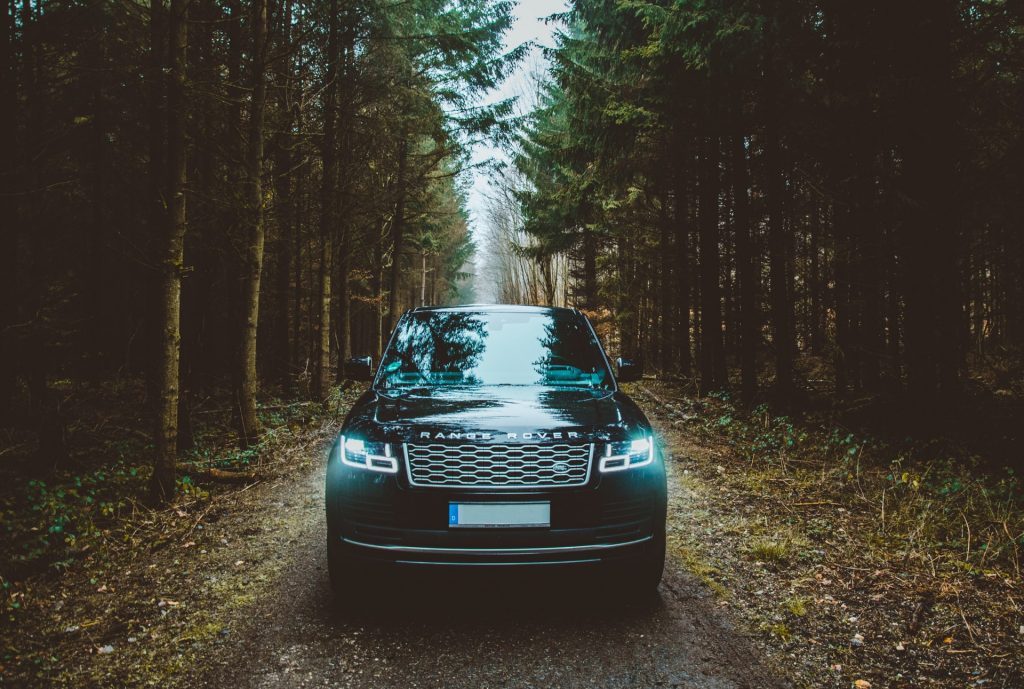Kensington and Chelsea and Hammersmith and Fulham buy more planet-bashing SUVs than anywhere else in the UK, a hotly-debated report shows.
The boroughs are closely followed by several other South West London boroughs.
Discourse was reignited on Twitter by journalist and political activist Ash Sarkar when she quoted statistics from an April 2021 report by climate charity Possible and the New Weather Institute think tank.
She referenced the report which says 74% of Sports Utility Vehicles (SUVs) are registered to owners in cities, and six of the ten areas with the most SUV sales were wealthy London boroughs, according to figures from the Department of Transport 2018-2020, notably Kensington and Chelsea.
Report co-writer and Possible’s director of innovation Leo Murray said: “It’s mostly about concentration of wealth. People have a lot of money and they want to show that.
“There are some working people who drive pick-up trucks for work reasons. They’re a tiny minority, it’s not what’s driving sales of SUVs.
“These vehicles are not actually performing a practical function, they’re performing a psychosocial function for their owners.
“Elitism is literally the sales pitch: you can look down on other road users.”
Thanks to their weight and energy inefficiency, SUVs produce around 25% more carbon dioxide than what Possible classed as a ‘medium-sized’ car.
They also wear down roads and tyres faster, releasing more particulates into the environment.
SUV sales are increasing more rapidly than those of electric vehicles.
The report identified this as the second biggest cause of escalating carbon emissions, ahead of aviation and heavy industry, and second only to power generation.
Kensington and Chelsea consistently featured as the UK’s worst offender for SUV sales.
Out of all vehicles registered in the borough between 2018 and 2020, 36% were SUVs and more than one in five were cars with average emissions in the highest 10% of the UK market.
Kensington and Chelsea was also identified as the Range Rover capital of Britain, with Range Rovers representing more than one in ten new cars registered there since 2018.
However, while Kensington and Chelsea topped the leader-boards, several other South West London boroughs followed closely on its heels.
Hammersmith and Fulham, Richmond upon Thames and Wandsworth were all in the top ten of areas with a high percentage of SUV sales, SUVs making up over a quarter of all new registrations there.
Murray expressed frustration with those that tried to justify SUV sales by arguing they were often electric, as this was true for only 0.9% of SUVs sold in 2019, and electric SUVs remain heavy and inefficient.
He said: “Yes, we need electric vehicles, but do we need electric SUVs? For what purpose?
“Electric SUVs are just not the sort of gotcha that people think it is.”
He attributed trends in central South West London to a local culture of large cars, despite the fact that a high proportion of vehicles being parked on-street meant space was at a premium, and SUVs are too large for standard UK parking spaces.
The report revealed the serious implications SUVs have for road safety, as collisions between vehicles of significantly different weights are more likely to be fatal.
Drivers view SUVs as safer, it warned, even though the extra weight means they have longer stopping distances, and drivers of smaller vehicles increasingly felt that they should upsize to avoid being crushed beneath huge wheels.
It declared: “Thanks to SUVs, an arms race is underway on our streets; one in which only the biggest, baddest cars will survive.”
Murray explained that the report focused on advertising as both a culprit and a cure for this problematic socio cultural trend.
It argued consumers had been misled by advertisers who persuaded drivers to buy cars that were vastly over-engineered for the urban environment in which they were actually used.
“Global climate change goals are in jeopardy because so many ordinary households are being persuaded to buy two tonne trucks to drive the kids to school on crowded city streets,” it stated.
“There is a key paradox here that is particularly painful for SUV owners, lured with the promise of wilderness and the open road, but actually trapped inside a polluted gridlock of their own making.”
As part of its Badvertising campaign, launched in August 2020, the report called for the government to ban advertising for at least the dirtiest third of the most polluting vehicles, overwhelmingly SUVs.

Tony Devenish, who represents Kensington and Chelsea, Hammersmith and Fulham and the City of Westminster on the General London Assembly (GLA), has criticised the report since it first emerged.
The deputy chairman of the GLA’s environment committee and soon to be attending the United Nations climate conference COP 26 in Glasgow, he described Badvertising’s goals as appalling.
He said: “That is the thin end of the wedge. You don’t ban advertising for something.
“Who are the people that wrote this report? Nobody’s elected them.”
He insisted that banning SUVs would not change the environment in any major way, regardless of the fact that an outright ban was never an aim of the report.
He said: “People want to have a class-war pop at what they consider to be rich, posh people. Quite frankly, it’s pathetic.
“We shouldn’t demonise people that want to drive large cars. They’re paying a huge amount of tax for their petrol or diesel and people need them for a variety of reasons in their life.
“If SUV drivers are going out to the country at the weekend, if they are going off-road, if they are going out with three children, two adults and a dog, it’s not for me to tell them they can’t do that.
“The reality is anybody has the right to buy a vehicle so long as they can afford it. People make their own choices. That’s that. We live in a democracy.”
Murray described Devenish’s views as farcical and said: “These vehicles are massively over-engineered. Nobody needs one of these things.
“Nobody’s driving them off-road, they’re never using the four wheel drive function. SUVs are obviously not being used for what they were designed to do.”
He explained the report’s focus on advertising, saying it was difficult to get people to change their behaviour if doing so meant asking them to swim against the cultural tide.
Murray was therefore thrilled that Sarkar’s tweet has brought this conversation back into public discourse.
He said: “It’s a very good sign. It’s absolutely what needs to happen.
“If people start to think that everyone will think badly of them if they buy one of these cars, they might think twice about doing it.
“That’s already true to a point, but it’s spreading through public consciousness.”
For Murray, the aims of Possible’s report did not go far enough.
He said: “People complain about electric vehicles being too expensive, but maybe we should ban the sales of very polluting cars over a certain price.
“If you are someone that can afford to spend £70,000 on a Range Rover Defender, you can afford a Tesla as well, right? Buy a Tesla.
“You’re basically outing yourself if you’re driving around in these extremely expensive and extremely polluting cars.
“If you want to show off that you’ve got a load of money, that’s fine, but do it in a responsible way.”




